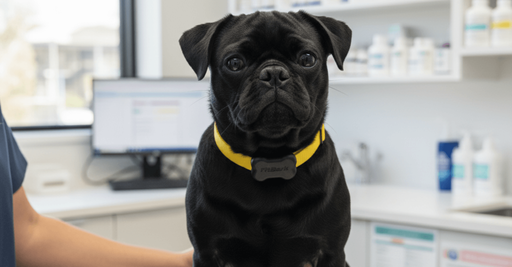Did you know that a furry, four-legged friend could improve your mental health? It might sound too good to be true, but it isn’t!
From playing fetch to watching TV with your new BFF, there are tons of aspects of your life that could see mental health benefits when you add a dog to the equation.
If you’ve been feeling low or struggling with anxiety, a fluffy pal could be just what you need. Here’s everything you need to know about pets and mental health!
A Quick Note of Mental Health
It’s important to acknowledge that dogs are not a quick fix to treating mental health concerns. This is a serious topic for many people and one that we hope everybody treats as such.
With that in mind, if you’re struggling with your mental health, please seek professional help. You can talk to your doctor, seek specific mental health treatment for depression and other illnesses, or call a mental health helpline if you’re in urgent need of support.
Dogs can undoubtedly help with recovery, but they always work best alongside proper professional care.
The History of Dogs and Mental Health
Pets and mental health aren’t a new connection. Florence Nightingale was one of the first medical professionals to note the potential of animals for therapeutic purposes all the way back in the 1800s.
There are also plenty of records of the esteemed psychoanalyst Sigmund Freud frequently using his dog, Jofi, in therapy sessions after noting his calming effect on patients.
It wasn’t until the late 1900s, though, that the links between dogs and improved mental health began to hit mainstream psychology. In the 1960s, Boris Levinson - a child psychotherapist with a great reputation - accidentally uncovered the possibilities of pets and mental illness when a nonverbal 9-year-old started to interact with Levinson’s dog.
Levinson then began using the dog in other sessions before presenting a paper to the American Psychological Association discussing animal-assisted therapy (AAT). When Freud’s use of Jofi came to light alongside Levinson’s paper, it set the ball in motion for a lot of dog-related research in the mental health field.
Fast-forward to the present day and animals (particularly dogs) are a staple of mental health recovery recommendations! But, what makes them so good for your well-being?
Benefits of Dogs for Mental Health
When you start looking, the psychological benefits of having a dog are almost endless. To keep things simple, though, we’ve taken a quick look at some of the positive changes you can see from having a four-legged friend.

Lower Your Stress Levels
Did you know that simply stroking a dog could make you feel less stressed?
Research has proven time and again that stroking your pet (or any pet, for that matter) can decrease levels of the stress hormone cortisol in the body.
If you’ve ever felt more relaxed with a pup sitting at your feet or after spending just a few seconds stroking a friendly dog, this is probably why.
Reduce Social Anxiety
If you get anxious about going outside or being around others, the right dog could help. Walking with a dog not only makes you feel less alone, but it’s also a conversation starter that can help break the ice if you want to talk to new people.
A well-trained, confident dog can make you feel safer and more confident, too, giving you a new lease of life in the outside world.

Combat Mood Disorders
As well as making you feel less stressed, spending time with your dog could actively make you feel happier.
If you’re someone who struggles with a mood disorder like bipolar or depression, the difference this can make to your life is incredible. By being around your fluffy pup, your body will start to produce more serotonin, oxytocin, dopamine, and endorphins, all of which are happy hormones you might have been lacking.
Increase Your Physical Activity
Go for a walk or a run with your dog, play with them in the garden, or throw the ball from a park bench - it’s all physical activity! Your physical health is so deeply linked with your mental well-being, too, making this important to note.

Just one hour of walking or 15 minutes of running a day has been shown to reduce the risks of major depression by over 25%. Exercise is also well-known for decreasing stress and anxiety, and boosting your mood. If a dog helps you stay active, you’re going to see the benefits of that.
Get Outdoors!
Having a dog means you’re going to be out walking at least once a day, rain or shine. For people struggling with their mental health, that sort of motivation can be hard to come by.
Your dog gives you a reason to get up, get dressed, leave the house, and feel the fresh air on your skin. It’s also a daily activity that you can build a routine around, which is crucial to reducing stress and anxiety.
Tips for Getting Started With a Dog
We could honestly go on for days about the wonderful links between pets and mental health. The general point we want to get across, though, is that they can transform lives, giving those struggling a constant source of joy and love as well as simply a reason to get out of bed in the morning.
So, if you’re thinking a pup might help you, how do you get started? We’ve pulled together some tips from our dog experts to help you.
Find the Right Dog
Finding the right pup is important if you’re looking for a bit of mental health support. For example, if you struggle with stress then a calm, easy-going dog is probably your best bet.
If you have anxiety about going outside, a dog that walks well and is properly socialized will help you feel more confident.
Luckily, a lot of rescue centers will match you up with the right pup based on your needs, making it easier to find your dream dog.
Put Aside Plenty of Time
A dog is a commitment and those first few days and weeks are crucial to settling you both into your new partnership.
It’s a smart idea to free up your schedule to focus only on you and your dog. Keep guests coming into your home to a minimum and get ready for lots of bonding time!

Get Everything You Need
Before getting your dog, you can get excited about your new pal by getting everything they need! Some of the essentials include:
- Dog bowls
- A cozy dog bed and blankets
- Toys for them to play with
- Collars and leashes
Take a look at some of our favourite accessories you can buy for your new companion (that are also functional)!
You might already start to feel the mental health benefits when you’re shopping, with the thought of caring for something other than yourself giving you a happy boost.
Final Words
There’s no denying that dogs can have a wondrous effect on mental health, helping you or your loved one feel more resilient in the face of mental illness. But, as we mentioned early on, they’re not going to fix everything.
If you’re going through a tough time, asking for help is always the answer so please do reach out to someone you trust for support.
For more puppy advice or to join a community of dog lovers with the FitBark App, check out other posts on our blog.



















